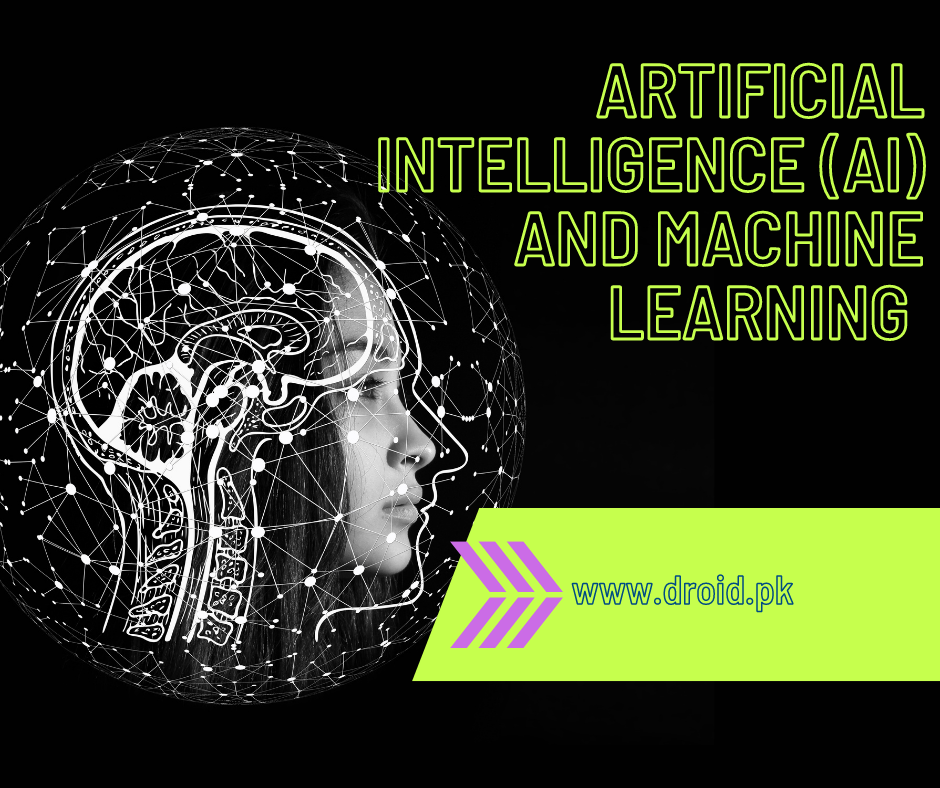
The Impact of Artificial Intelligence (AI) and Machine Learning (ML): Transforming the Future
Share

In today's rapidly evolving technological landscape, artificial intelligence (AI) and machine learning (ML) have emerged as powerful tools that are reshaping various industries. From healthcare to finance, entertainment to transportation, the impact of AI and ML is pervasive and transformative. In this comprehensive guide, we will explore the profound impact of AI and ML on society, businesses, and individuals. Get ready to dive into the world of intelligent machines and discover how AI and ML are transforming the future.
Understanding Artificial Intelligence (AI)
Defining Artificial Intelligence
- Explore the concept of artificial intelligence and its goal of replicating human-like intelligence in machines.
- Understand the different branches of AI, including narrow AI and general AI, and their respective applications.
Applications of AI in Everyday Life
- Discover how AI is integrated into our daily lives, from voice assistants and recommendation systems to personalized ads and virtual customer support.
- Explore the potential benefits and ethical considerations associated with AI adoption in various domains.
Unleashing the Power of Machine Learning (ML)
What is Machine Learning?
- Understand the fundamentals of machine learning and its iterative learning process.
- Explore the difference between supervised, unsupervised, and reinforcement learning techniques.
Machine Learning in Action
- Delve into real-world examples of machine learning applications, such as image recognition, natural language processing, fraud detection, and autonomous vehicles.
- Discuss the impact of ML algorithms on improving efficiency, accuracy, and decision-making across industries.
AI and ML in Healthcare
Revolutionizing Medical Diagnosis and Treatment
- Explore the use of AI and ML in medical imaging analysis, disease prediction, and personalized treatment plans.
- Discuss the potential of AI-powered robotic surgery and virtual nursing assistants in transforming healthcare delivery.
Enhancing Patient Care and Health Monitoring
- Learn how AI and ML algorithms enable remote patient monitoring, personalized health tracking, and proactive disease management.
- Discuss the ethical considerations and challenges associated with maintaining patient privacy and data security.
AI and ML in Business and Industry
Intelligent Automation and Process Optimization
- Discover how AI and ML technologies are automating repetitive tasks, streamlining operations, and improving productivity in various industries.
- Explore the potential impact of AI-driven robotic process automation (RPA) and intelligent chatbots on the workforce.
Data-driven Decision Making
- Understand the role of AI and ML in analyzing vast amounts of data to derive actionable insights and drive informed decision-making.
- Explore how predictive analytics and recommendation systems are transforming marketing, finance, and supply chain management.
FAQs
-
Q: What is the difference between AI and ML? A: AI refers to the broader concept of simulating human intelligence in machines, while ML is a subset of AI that focuses on training algorithms to learn patterns and make predictions from data. ML is a key technique used to achieve AI capabilities.
-
Q: How does AI benefit businesses? A: AI offers numerous benefits to businesses, including improved operational efficiency, enhanced customer experience, personalized marketing, predictive analytics, and cost savings through automation.
-
Q: What are the ethical considerations surrounding AI and ML? A: Ethical considerations in AI and ML include privacy protection, bias and fairness, accountability and transparency, and the potential impact on the workforce. It is crucial to address these concerns to ensure responsible and ethical AI deployment.
-
Q: Can AI and ML replace human workers? A: AI and ML technologies are designed to augment human capabilities rather than replace them entirely. While automation may eliminate certain repetitive tasks, AI is more commonly used to assist humans in making better decisions, improving efficiency, and tackling complex problems.
-
Q: How is AI used in autonomous vehicles? A: AI plays a crucial role in autonomous vehicles by enabling perception (object detection and recognition), decision-making, and control systems. ML algorithms are used to train autonomous vehicles to navigate and respond to dynamic environments.
-
Q: What are the future prospects of AI and ML? A: The future of AI and ML is promising, with advancements in areas like deep learning, natural language processing, and reinforcement learning. AI is expected to drive innovation, improve efficiency, and transform industries across the board.
Conclusion
The impact of artificial intelligence (AI) and machine learning (ML) is undeniable, revolutionizing industries and transforming the way we live and work. From healthcare to business, AI and ML are unlocking new possibilities and driving innovation. As we embrace these technologies, it is essential to consider the ethical implications and ensure responsible AI deployment. Let us embark on this exciting journey into the future, where intelligent machines collaborate with humans, opening up a world of endless possibilities.
